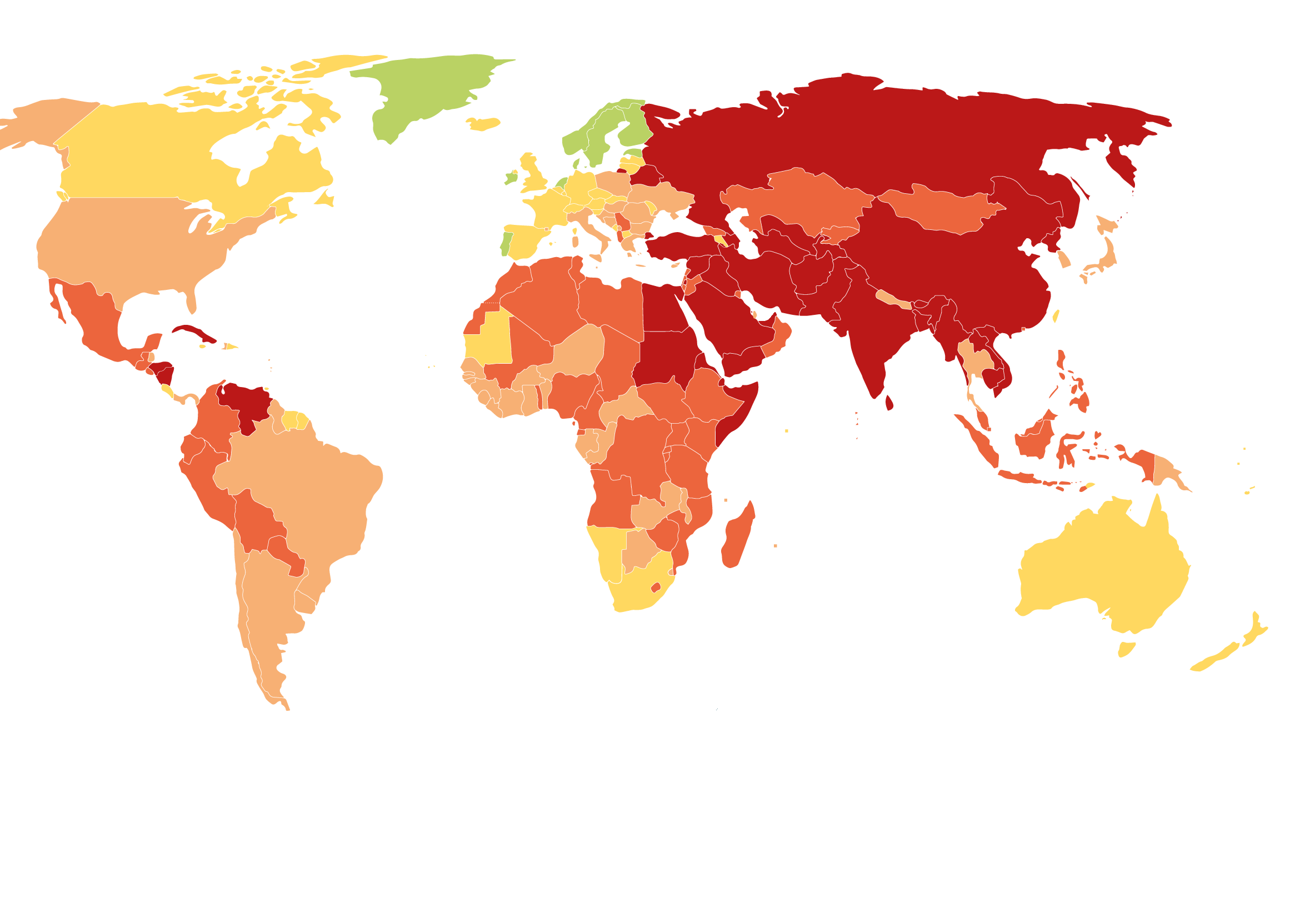South Africa guarantees press freedom and has a well-established culture of investigative journalism. In recent years, journalists have often been subjected to verbal attacks from political leaders and activists.
Media landscape
The South African media landscape is diverse, sturdy and dynamic. The media do not hesitate to reveal scandals involving powerful figures. Many news websites, such as the very popular News 24, have added paywalls, resulting in increasingly limited access to online news articles for a segment of the population that cannot afford to pay. The Sunday Times continues to be the best-selling newspaper. The Daily Maverick, an independent online publication whose content is still free of charge, is also very popular.
Political context
Political tension sometimes gives rise to disinformation or smear campaigns against media outlets, especially on social media. The African National Congress (ANC) – the ruling party since 1994 – has resorted to such campaigns, but those waged by the Economic Freedom Fighters (EFF), one of the opposition parties, are by far the most virulent. Its leaders and supporters do not hesitate to incite violence and accuse certain journalists of racism.
Legal framework
The 1996 Constitution protects press freedom, but apartheid-era and anti-terrorism laws are used to limit reporting on institutions deemed to be in the “national interest”. A new law provides for penalties of up to six months in prison for spreading false news about the Covid-19 pandemic. In 2021, the Constitutional Court ordered changes to the law on intercepting communications in order to safeguard the confidentiality of journalists’ phone conversations and the need to better protect their sources.
Economic context
Very high operating costs hamper the development of small, independent media outlets, which were decimated by the worst economic downturn in decades resulting from the Covid-19 pandemic. The government led by Cyril Ramaphosa, who has been president since 2018, is often accused of using its considerable discretionary powers to favour certain media outlets through advertising spending.
Sociocultural context
The public appreciates the media’s reporting, perhaps in recognition of the important role journalists played in reporting on the abuses of the apartheid regime, but also because of the high level of interest in politics, crime, justice and social policy. Some subjects are hard to cover, and journalists are often obstructed when covering protests.
Safety
Journalists are rarely arrested in South Africa. Nonetheless, journalist Thomo Nkgadima was detained for more than 48 hours in December 2023. The safety of journalists who expose the endemic corruption is threatened by those implicated. In 2023, the Moti Group business conglomerate waged an unsuccessful legal battle against the investigative media outlet amaBhungane after it reported conflicts of interest in Moti’s mining operations. Another worrying trend is police violence against journalists and surveillance of investigative reporters.




